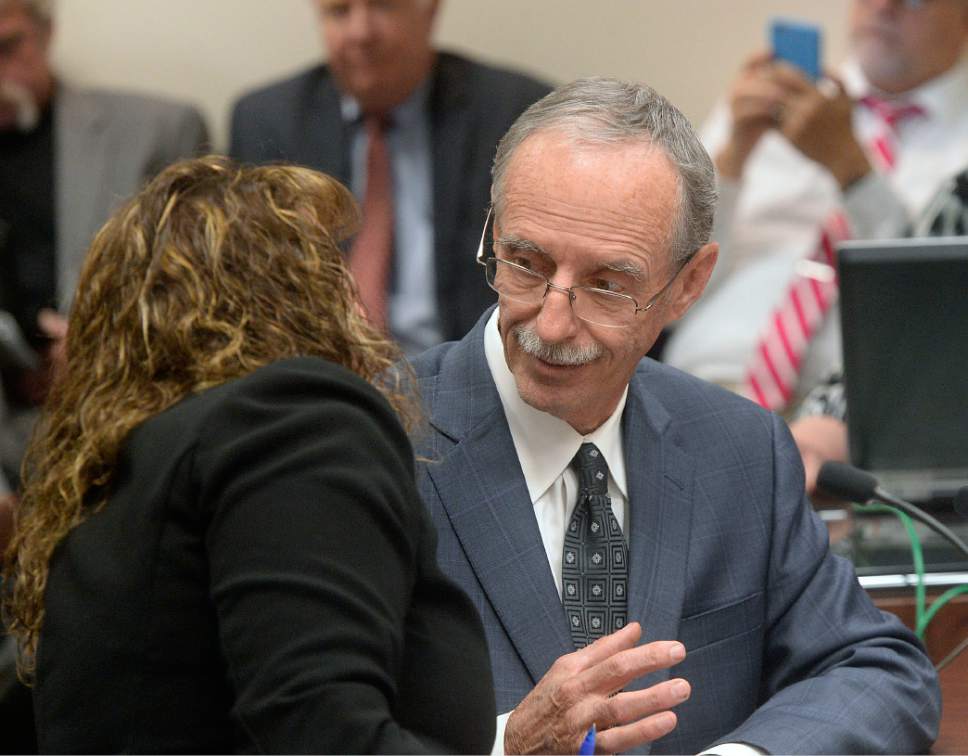This is an archived article that was published on sltrib.com in 2017, and information in the article may be outdated. It is provided only for personal research purposes and may not be reprinted.
Lawmakers decided Tuesday that they need more time — maybe the rest of the year — to work out legislation that could allow removing elected officials, such as embattled Salt Lake County Recorder Gary Ott, due to mental incapacity.
The House Political Subdivision Committee voted unanimously to hold HB364, which its sponsor, Rep. Rebecca Chavez-Houck, acknowledged was "not ready for prime time yet."
The Salt Lake City Democrat said she brought it to the committee "mainly to see what concerns they would have" and intends now to work on it through the summer after the Legislature adjourns.
Her bill initially called for a three-step process to remove someone with diminished capacity.
It would have required voters to gather signatures seeking removal; a subsequent unanimous vote by the local legislative body, such as a county council, in the jurisdiction of the official; and a proceeding in district court to order removal.
Chavez-Houck said she found committee members dislike the idea of using a voter petition — so she instead may focus on using courts or the local legislative body to remove an official.
Rep. Logan Wilde, R-Croydon, noted Morgan County is the only county in Utah that allows recall elections and said he has seen it used as a political tool to try to pressure officials. He worries the same would happen if opponents could allege mental incapacity and push a petition for removal.
But former Democratic state Sen. Scott Howell, who also ran for the U.S. Senate, said laws are needed to avoid what he saw in the late 1980s. He said a state senator, who may have had dementia, required colleagues to tell him how to vote.
"You are elected to represent your constituents," not staff or others, he said. If an elected leader is unable to do that, he said, laws should allow their removal.
Lawmakers said many problems remain to be solved, including how to handle the medical privacy of the elected official, how to define incapacity, and how to work out a fair method for removal.
Chavez-Houck said the case of Ott necessitated addressing the issue. Salt Lake County officials say he may not be mentally fit for office, but they have no legal way of removing him.
In October, Ott had difficulty addressing even basic questions from the council, such as, "What's your address?" "What's your chief deputy's name?" and "Are you being manipulated by people on your staff."
Time and again, Ott's barely audible responses wandered off into descriptions of an accident he had with his hand, or his shingles, or his mantra that he has the best staff in the world and they all work together.
A performance audit of the recorder's office found Ott was rarely involved in the office's day-to-day management. His aides have disputed that.
Some on the County Council have questioned whether Ott's aide and girlfriend, Karmen Sanone, and others are propping him up in the roughly $150,000-a-year job.
But the audit found the office is running well enough that it complies with all state and county laws, generates few complaints from the public and delivers its services at reasonable prices.
Chavez-Houck said she had hoped that someone from Ott's own Republican Party would have sponsored legislation to address the issue, but explained that she pushed hers when nothing else appeared during the year that Ott's behavior has been a public issue.





